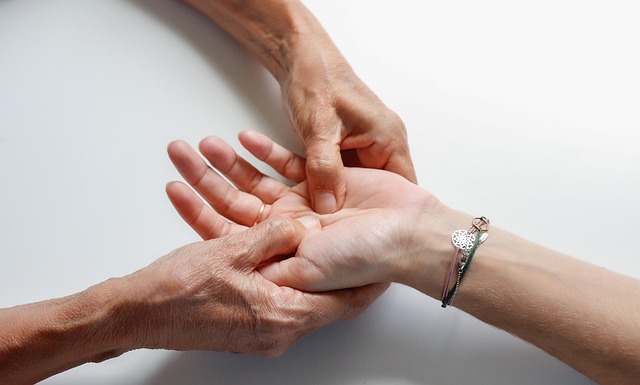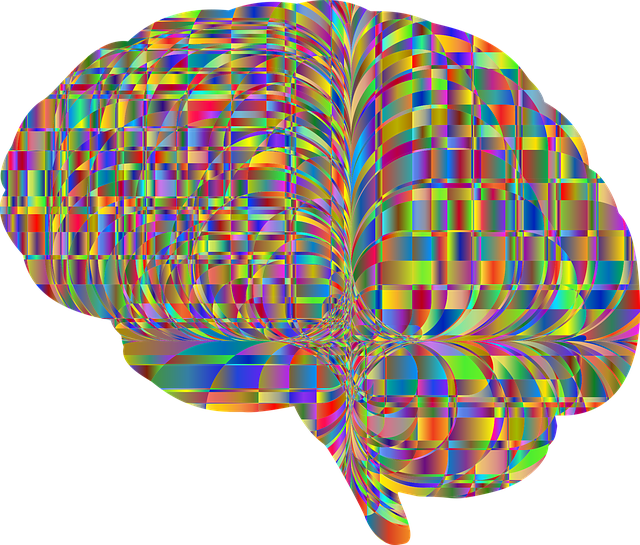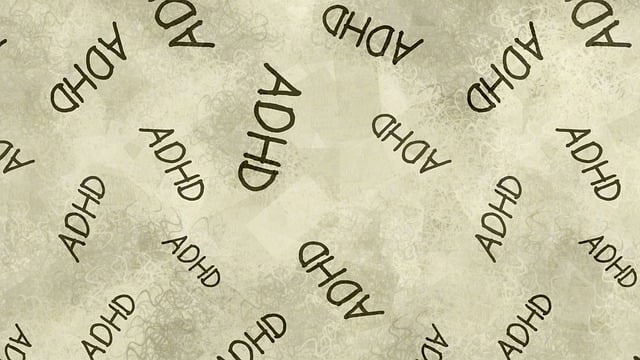Holistic mental health is a comprehensive approach that views well-being as harmony across interconnected mind, body, and spirit aspects, diverging from traditional models by integrating various therapeutic practices. Mind therapy, focusing on cognitive reframing and emotion regulation, promotes resilience and emotional intelligence. Physical practices like yoga and tai chi enhance self-awareness and reduce stress. Spiritual healing techniques such as meditation and time in nature foster inner peace and purpose. Integrative therapies combine methods from CBT, mindfulness, yoga, and energy healing for personalized treatment plans. Self-care, including exercise, mindfulness, creative pursuits, and spiritual practices, is crucial for achieving optimal well-being and mental health by fostering balance, harmony, and resilience.
In today’s fast-paced world, prioritizing holistic mental health is more crucial than ever. This comprehensive guide delves into revolutionary mind-body-spirit therapy approaches, offering a multifaceted perspective on well-being. From understanding the intricate link between cognitive, emotional, and physical health to exploring spiritual healing and integrating various therapeutic methods, we empower folks to navigate life’s challenges with resilience. Cultivate self-care practices for a harmonious mind-body connection and unlock your innate potential.
Understanding Holistic Mental Health: A Comprehensive Approach

Holistic mental health is a comprehensive approach that recognizes the deep interconnectedness between our minds, bodies, and spirits. It understands that mental well-being isn’t just the absence of illness but a state of harmony across all aspects of an individual’s existence. In this view, physical health, emotional resilience, and spiritual fulfillment are not isolated components but part of a vibrant tapestry where each thread influences and enriches the whole.
This holistic perspective challenges traditional models that often segregate mental health from other areas of life. By integrating various therapeutic modalities—such as mindfulness practices, body-oriented therapies, and energy healing—holistic mental health approaches aim to treat the individual as a whole rather than focusing solely on symptoms. This inclusive strategy fosters deeper healing, enhances well-being, and empowers individuals to navigate life’s complexities with greater balance and resilience.
Mind Therapy: Exploring Cognitive and Emotional Techniques

Mind therapy is a pivotal aspect of holistic mental health, focusing on the intricate connection between thoughts, emotions, and overall well-being. This therapeutic approach leverages cognitive and emotional techniques to help individuals gain deeper insights into their minds, challenge negative thought patterns, and develop healthier coping mechanisms.
Cognitive reframing, for instance, involves identifying and modifying distorted thinking, replacing unhelpful beliefs with more realistic and positive ones. Similarly, emotion regulation strategies teach individuals how to recognize and manage intense feelings, fostering better emotional intelligence. Through these methods, mind therapy empowers people to navigate life’s challenges with greater resilience and a heightened sense of self-awareness, ultimately contributing to improved mental health and enhanced quality of life.
Body-Mind Connection: The Role of Physical Practices

The mind and body are intricately connected, and this relationship forms the foundation for many holistic mental health approaches. Physical practices, such as yoga and tai chi, are powerful tools that facilitate this connection. These ancient practices not only improve physical health but also have profound effects on mental and emotional well-being. By combining controlled movements with deep breathing techniques, individuals can enhance their self-awareness, reduce stress, and cultivate a sense of inner calm.
In the context of mind-body-spirit therapy, these physical activities become a means to access and regulate emotions. The body’s natural responses to movement can help release built-up tension and promote mental clarity. Many holistic therapists incorporate such practices into their treatments, recognizing that addressing the physical aspect of an individual’s life can lead to significant improvements in their overall mental health and spiritual connection.
Spiritual Healing: Connecting with Inner Peace and Purpose

Spiritual healing is a cornerstone of holistic mental health, focusing on connecting individuals with their inner peace and purpose. This approach recognizes that our spiritual well-being is deeply intertwined with our mental and emotional states, offering a comprehensive path to wholeness. Through practices like meditation, prayer, or spending time in nature, individuals can tap into a sense of transcendence, fostering a deeper understanding of themselves and their place in the world.
This internal journey often involves exploring personal values, beliefs, and life purpose. By cultivating a stronger connection with our spiritual selves, we can gain insights that promote self-acceptance, empathy, and resilience—all vital components of holistic mental health. These practices encourage individuals to embrace a sense of belonging and meaning, ultimately enhancing their overall well-being.
Integrative Therapies: Combining Methods for Optimal Wellness

In today’s world, many individuals are seeking comprehensive approaches to wellness that encompass both mental and physical well-being. This is where Integrative Therapies shine, offering a holistic mental health perspective by combining various therapeutic methods. By fusing elements from different schools of thought, such as cognitive-behavioral therapy (CBT), mindfulness practices, yoga, and energy healing, these therapies create a tailored and effective treatment plan for each unique individual.
This integrative approach allows therapists to address the mind, body, and spirit as interconnected systems. For instance, combining CBT with mindfulness can help individuals manage stress and anxiety by challenging negative thought patterns while also cultivating present-moment awareness. Similarly, blending yoga with talk therapy enables clients to explore their emotions through movement and breathwork, fostering a deeper sense of calm and self-acceptance. Such comprehensive strategies not only enhance traditional talk therapy but also cater to diverse client needs, promoting optimal wellness.
Practicing Self-Care: Cultivating a Holistic Lifestyle

In the journey towards optimal well-being, self-care is a cornerstone that supports holistic mental health. It involves attending to one’s physical, mental, and emotional needs in equal measure. Cultivating a holistic lifestyle means adopting practices that nurture each aspect of the mind-body-spirit connection. This can include regular exercise, mindfulness meditation, or engaging in creative outlets—all activities that promote relaxation, reduce stress, and enhance overall mental clarity.
A key element of self-care is recognizing that we are not just physical beings but also spiritual entities. Incorporating practices like yoga, spending time in nature, or engaging in rituals that foster a sense of inner peace can profoundly impact our mental health. By integrating these holistic approaches into daily routines, individuals can achieve a deeper sense of balance and harmony, thereby strengthening their resilience to life’s challenges.
